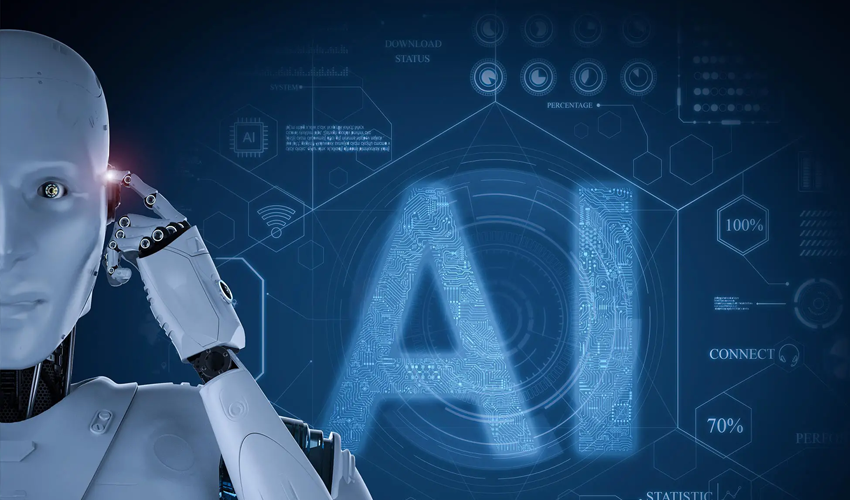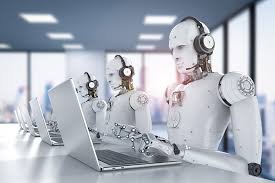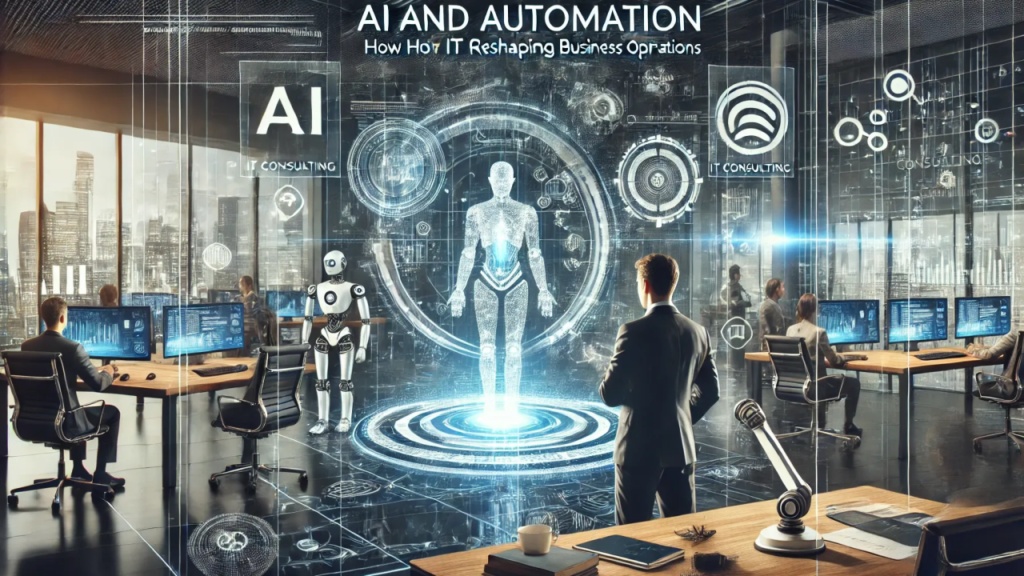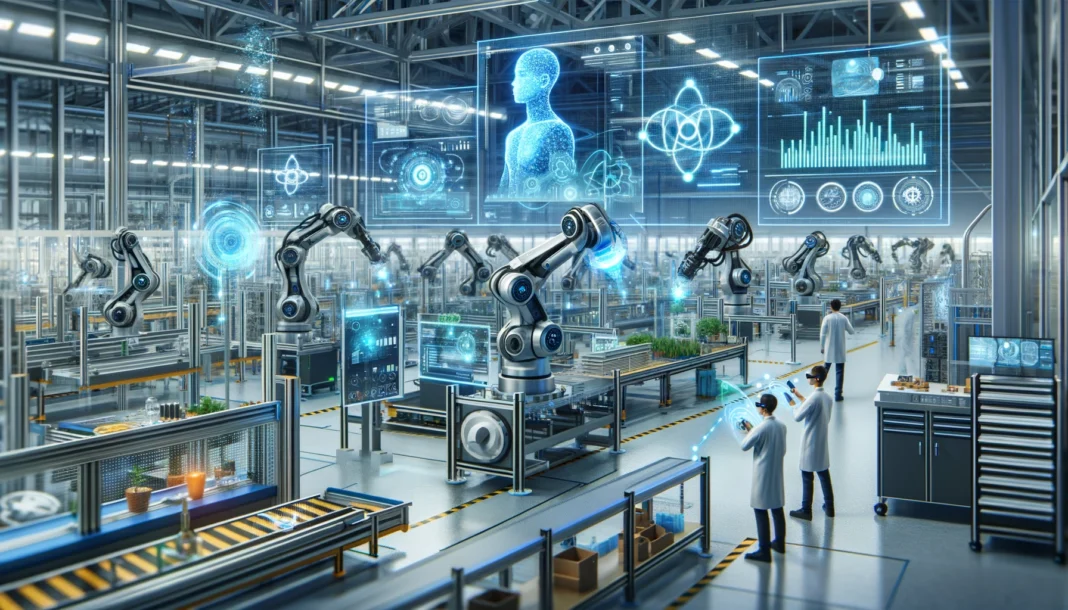The Smart Shift: UK Businesses Embrace AI and Automation in 2025
Let’s be real—ten years ago, if you’d told someone that AI would soon be writing ad copy, handling customer support chats, and even helping doctors diagnose illnesses. They probably would’ve laughed it off. But here we are in 2025, and it’s not science fiction anymore. It’s happening right now, and the UK is right at the center of it.
From small shops in Yorkshire to corporate towers in London, artificial intelligence and automation aren’t just trends. They’re completely reshaping the way businesses run. And you know what? It’s not about replacing people. It’s about helping people do better, smarter work.
The Dawn of a New Digital Era

Ask any manager or entrepreneur in the UK what their top priority is these days. And chances are they’ll say one word: efficiency. And that’s exactly where AI comes in. It’s not just for tech giants anymore.
Think about it! Chatbots now handle thousands of customer queries every day without breaking a sweat. AI helps stores restock shelves before they go empty. Automation tools are taking over repetitive stuff like invoicing or posting on social media. Leaving real humans with time to actually be creative and think big.
COVID Was the Wake-Up Call

If there was a turning point, it was the pandemic. When lockdowns hit, many businesses had to sink or swim. And for most, surviving meant going digital—fast. That’s when a lot of companies realized they couldn’t afford to ignore tech any longer.
A 2024 TechUK report even found that almost 70% of medium and large UK businesses were getting serious about AI. This wasn’t about jumping on a bandwagon. It was about staying in the game.
Real Stories from the Field

Let’s talk about real-world examples. Take ASOS — they’re using AI to predict what clothes customers want. How many returns to expect, and what to stock next season. It’s like having a fashion psychic on the payroll.
Then there’s Barclays, where AI helps detect fraud in real time and gives customers personalized financial advice. It’s not just efficient, it’s smart banking.
And in healthcare, the NHS is testing AI tools that read patient data and help doctors spot illnesses sooner. That’s not just cool, that’s saving lives.
Automation: But Not the Kind You Think
When people hear “automation,” they still imagine factory robots. But today it’s more like invisible assistants running behind the scenes.
Welcome to the Digital Office

Whether you’re in an office or working from home, chances are you’re already using automation without even realizing it. Those reminder emails you get? Automated. The payroll system that pays everyone on time? Also automated.
Apps like Zapier, UiPath, and Microsoft Power Automate are making it ridiculously easy to connect tools and smooth out the messy bits of daily work. And the best part is it frees up teams to focus on the stuff that really moves the needle.
Small Biz, Big Tech
And here’s the exciting bit! It’s not just for the big players anymore. Thanks to cloud services and subscription tools, even small businesses are automating like pros.
There’s a bakery in Brighton that uses AI to predict how many croissants they’ll sell on a rainy Tuesday. Or a design agency in Glasgow that uses smart tools to plan campaigns based on real-time customer behavior. This stuff used to be expensive and complicated. Now it’s click-and-go.
Not All Smooth Sailing
Look, this shift isn’t without its headaches.
The Skills Crunch
As more tech comes in, the need for people who understand it is going up. Data analysts, AI specialists, automation engineers — they’re in demand. But it’s not just about hiring. Companies are realizing they need to train the folks they already have.
Thankfully, places like Coursera, FutureLearn, and UK universities are stepping up with new programs. But the clock’s ticking.
Playing Fair with Data
Let’s not forget the big E-word: ethics. As businesses collect more data and rely on AI decisions, customers want to know they’re being treated fairly. The GDPR rules are still strong — and rightly so.
The companies that will win in this new world? They’re the ones that treat customers like humans, not numbers. Transparency and trust are everything.
So What’s Next?
The crazy thing is we’re just getting started. By 2030, we’ll likely see things like quantum computing and edge AI becoming mainstream. But that doesn’t mean everyone needs to become a tech genius.
What really matters? Being open to change, staying curious, and thinking about how to use this tech to make life better for teams, for customers, for everyone.
Keep It Human
At the end of the day, all this tech is just a tool. The real magic happens when people use it to create, connect, and care. Whether it’s helping someone make better decisions or giving a team more time to innovate, the goal isn’t to replace us. It’s to raise us up.
The Future’s Already Here
So, here we are. AI and automation aren’t coming — they’re already part of the fabric of UK business. And honestly, that’s a good thing.
This new chapter isn’t about robots taking over. It’s about smart tools helping people do what they’re best at. If we use them right — with creativity, ethics, and a bit of guts — there’s no limit to what we can achieve.
Welcome to the future. It’s not cold or scary. It’s smart, it’s human, and it’s already happening.
FAQs: How AI and Automation Are Reshaping UK Businesses

Q1: What specific applications of AI are we witnessing in UK businesses?
A: To be honest, practically everywhere. AI is used in marketing, logistics, banking, and even farming. Retail behemoths like ASOS use it to customize the shopping experience, and banks like Barclays use it to identify fraud in real time. It is no longer limited to the tech industry.
Q2: Can small businesses employ AI, or is it only for the major players?
A: Small firms can also benefit from it. That is among the most amazing things that are taking place at the moment. A two-person team in Sheffield can automate activities equally as effectively as a 500-person firm thanks to reasonably priced, cloud-based AI solutions. No coding PhD is necessary.
Q3: Will AI replace humans in the UK?
A: AI aims to transform employment rather than replace them. New roles in data science, machine learning, and AI ethics are developing, even though some of these roles might be automated. Collaboration between people and machines is the main topic.
Q4: Is it safe to utilize AI with consumer data?
A: Indeed, but it will depend on how it is implemented. Respecting moral AI norms and GDPR is essential. Companies need to collect, store, and use consumer data in an open and safe way.
Q5: How can companies get ready for increased AI adoption?
A: Training should come first. Develop a digital transformation roadmap, upskill your staff, and start with tiny AI technologies. Above all, pay attention to technology that actually fixes issues rather than merely trendy trends.
Conclusion:
The Future of Business in the UK Is Here — And It’s Automated

Let’s be real: AI and automation aren’t “coming” soon”—they’re already changing the game. Across the UK, companies big and small are using smart tech to work faster, think bigger, and compete harder.
This isn’t about robots taking over. It’s about giving people the tools to do more, create better, and lead smarter. Whether you’re running a startup in Manchester or managing a team in London, this is your moment to level up.
If you want to win in 2025 and beyond, here’s what you need to do:
- Go digital — automate the boring stuff
- Upskill your team — future-proof your workforce
- Stay human — use tech to connect, not disconnect
